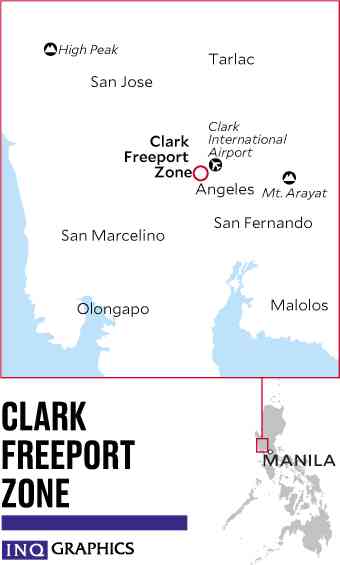In Pampanga, tribe members learn new skills at Clark training hub
Credit to Author: racosta| Date: Sat, 27 Jul 2019 21:10:35 +0000
CLARK FREEPORT, Pampanga, Philippines — Three-year-old Diana Santiago began preschool on Monday. It was the same for 49 more Aeta children and adults, coming either for morning or afternoon classes.
In another room, Diana’s mother, Lani, tried her hands on sanitation and hygiene activities. “Mabiasa ke sa kanyan (We’ll learn in time),” Lani said.
Classes at Clark Skills and Training Center (formerly Clark Polytechnic compound) are held for the Pagsasarili Family Care Center for Indigenous Peoples, a corporate social responsibility program of the state-owned Clark Development Corp. (CDC).
The center will be transferred to Barn House 2092 once reconstruction is finished, according to Rommel Narciso, head of CDC external affairs.
Unprecedented
Vilma Mercado, one of the four Aeta teachers at the center, said the program was unprecedented in several ways.
“Pagsasarili readies them for kindergarten learning. Parents learn practical skills at the same time, too,” said Mercado, a graduate of elementary education at Ramon Magsaysay Technological University in Zambales province.
“They (children or parents) may emerge as good community leaders in the future,” said Myla Sevilla, who handles the courses for parents.
Teachers Janet Sibal and Joannaliza Vergara, just in their 20s, are enthusiastic about Pagsasarili.
“The children are going to get good [educational] foundation,” Leilani Cunanan, schools superintendent in Angeles City, said at the launch of Pagsasarili on Monday.
It is also a step in “developing the human capital to cultivate a sustainable community for [the] Aeta,” said CDC chair Jose “Ping” de Jesus. He is credited for championing Aeta education as a centerpiece of corporate social responsibility (CSR) projects.
The first batch of young and adult learners comes from tribal communities in Mabalacat City in Pampanga province and Bamban town in Tarlac province, all north of Clark Freeport.
Pushed to peripheries
The Aeta people claimed to have been pushed to the peripheries when the US military established Fort Stotsenburg in 1903 and Clark Field in 1919.
In the 1980s, religious congregations, including Benedictine nuns, taught them how to read, write and negotiate for their farm produce.
Mt. Pinatubo’s eruptions in June 1991 and the rejection by the Senate of the 1947 Military Bases Agreement in September that year led to the closure of US bases and the pullout of most American troops.
At present, government and private offices in the base-turned-free port employ not more than 100 Aeta people, a few in white-collar jobs.
Ancestral domain
De Jesus said the physical and economic development of 10,323 hectares, registered as Certificate of Ancestral Domain Claim 025A (CADT 025A) within the Sacobia subzone inside the 31,489-ha Clark Special Economic Zone, would not be possible if the tribespeople were not active actors in the process.
Aeta families and CDC agreed to develop the areas covered by CADT 025A under a joint management agreement (JMA) signed in December 2007.
Leadership disputes among five groups of Aeta, a congressional hearing and land speculations by “unat” (lowlanders), among others, delayed the implementation of the JMA.
“We are getting to the JMA soon,” De Jesus said, referring to talks that have resumed with the ethnic communities.
Pagsasarili derived its funds from CDC and not from leases paid by firms with businesses inside CADT 025A, said Noel Manankil, CDC president.
OB Montessori trained the Aeta teachers, developed the modules and provided school supplies. CDC gives meals, vitamins, school uniform and free bus service.
The Department of Education has linked the center to the local governments of Mabalacat and Bamban so that the students will be absorbed in the K-12 program later. Local governments and CDC pay the salaries of teachers.
Eradicating poverty
Preciosa Soliven, OB Montessori founder, said the group decided to support CDC’s CSR because it was geared toward “eradicating poverty.”
Sara Francesca Soliven-de Guzman, executive vice president of OB Montessori Child and Community Foundation Inc., said “CDC people working with their hearts” helped convince her group to work with the agency.
Aeta leaders have harbored doubts on the sincerity of a new batch of CDC officials or they are keeping an open mind how this new tack by the agency is going to make a difference in the lives of the tribes.
But De Jesus said: “It’s our modest contribution to help the Aeta.”
